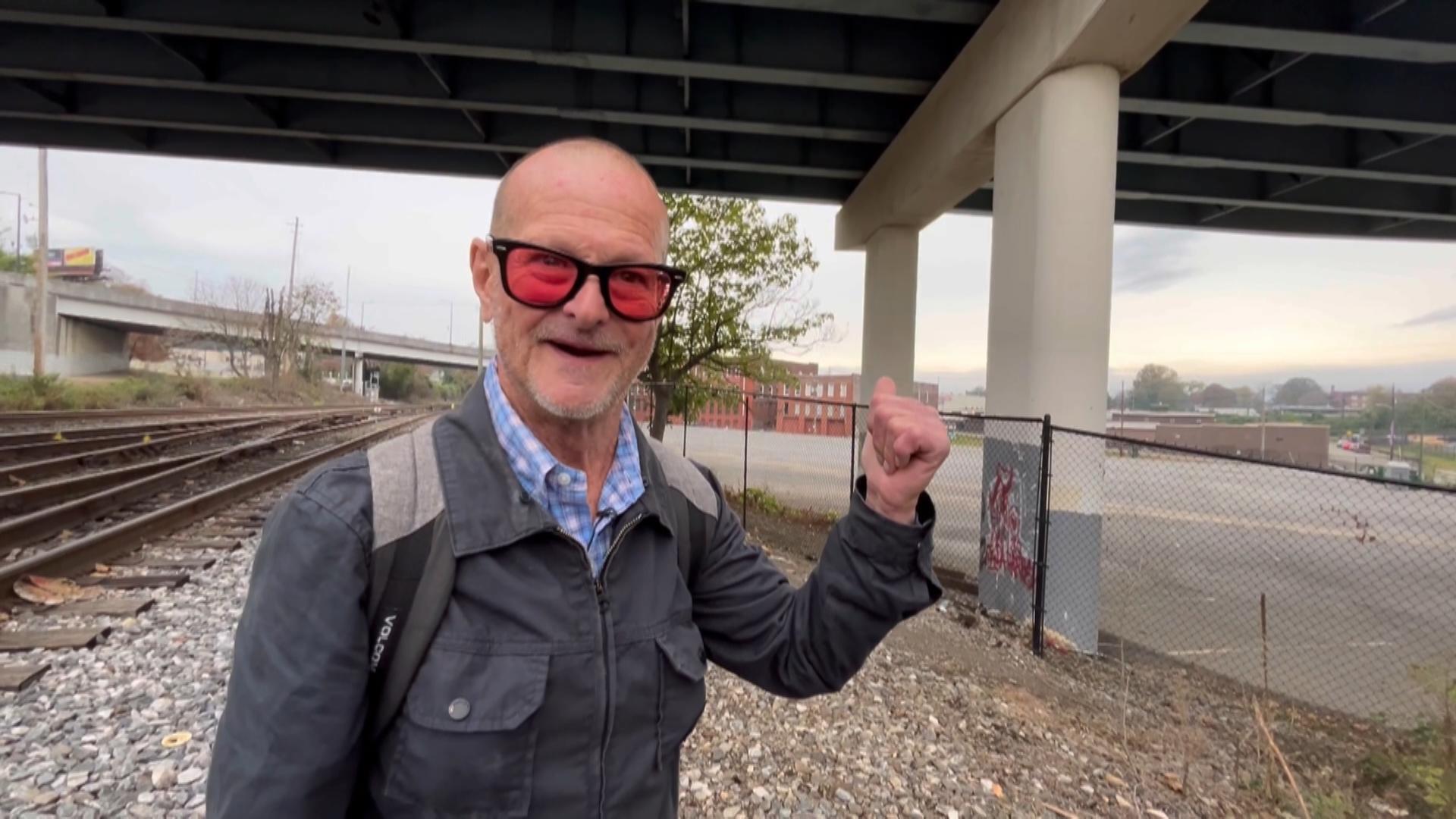Surviving the streets: A glimpse into the daily reality of homelessness
We spent the day with two men who are experiencing homelessness to see what it's like to survive on the streets in Knoxville. Here's what we learned.
WBIR
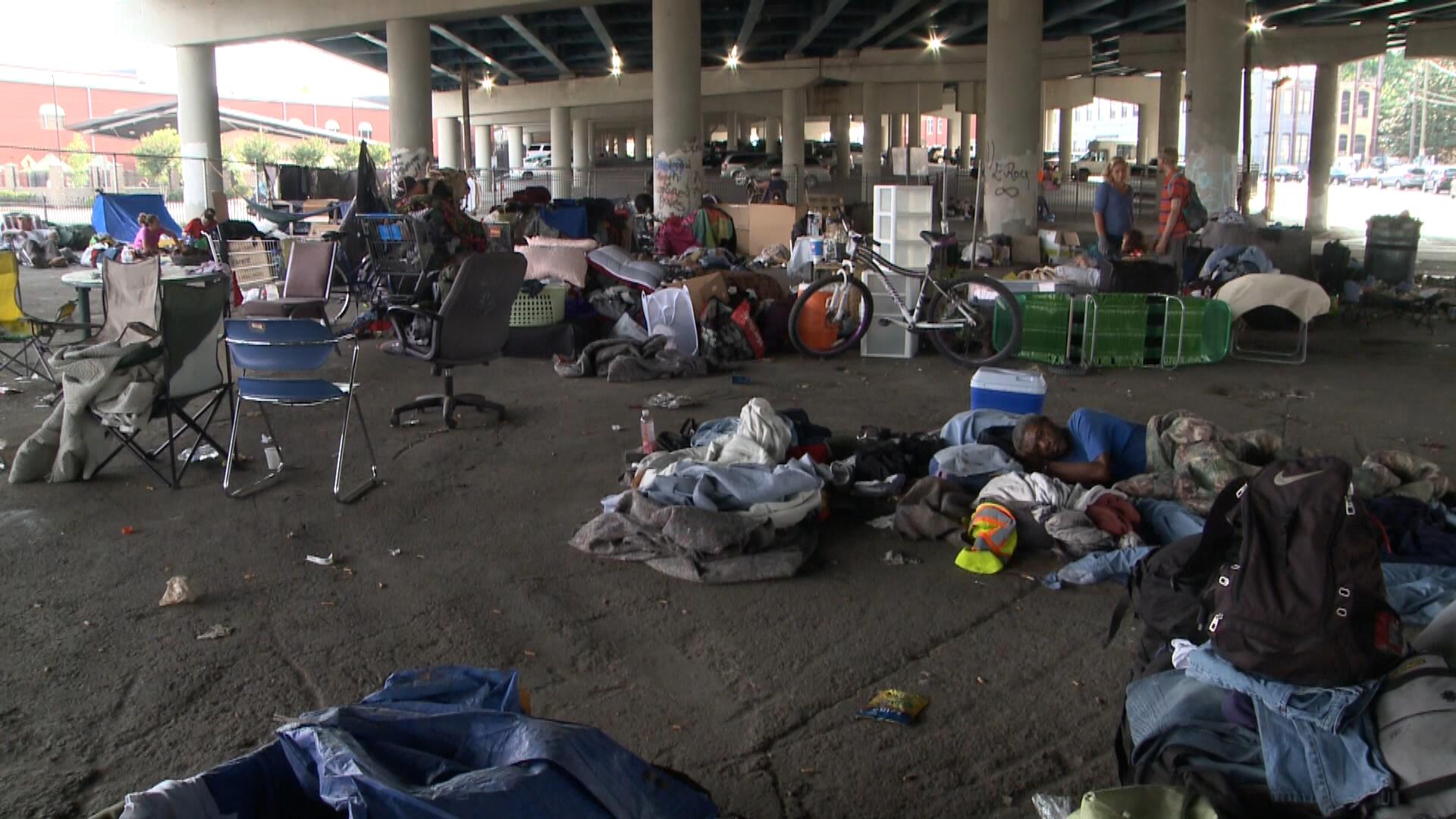
The trend in homelessness is increasing throughout Knox County, according to local leaders. There are more than 1,900 people living on the streets throughout the county, based on statistics from KnoxHMIS, a database of statistics surrounding homelessness.
When you drive under the bridge over Broadway near downtown or pass a person on the street, have you ever stopped to think what their life is like?
WBIR spent the day with two men, Scott Wilcoxson and Keith, who have been living on the streets for years. They gave us a small glimpse into what it's like living on the streets of Knoxville. We also talked to local organizations to get an idea of the issue in our community, potential future solutions and the current resources offering help.
A day living on the streets with Keith
Keith has been homeless for nearly a decade in Knoxville, staying wherever he can.
"There's so much energy required just to survive," he said.
Throughout the years, Keith has been working work odd jobs for extra cash, like cleaning storm drains.

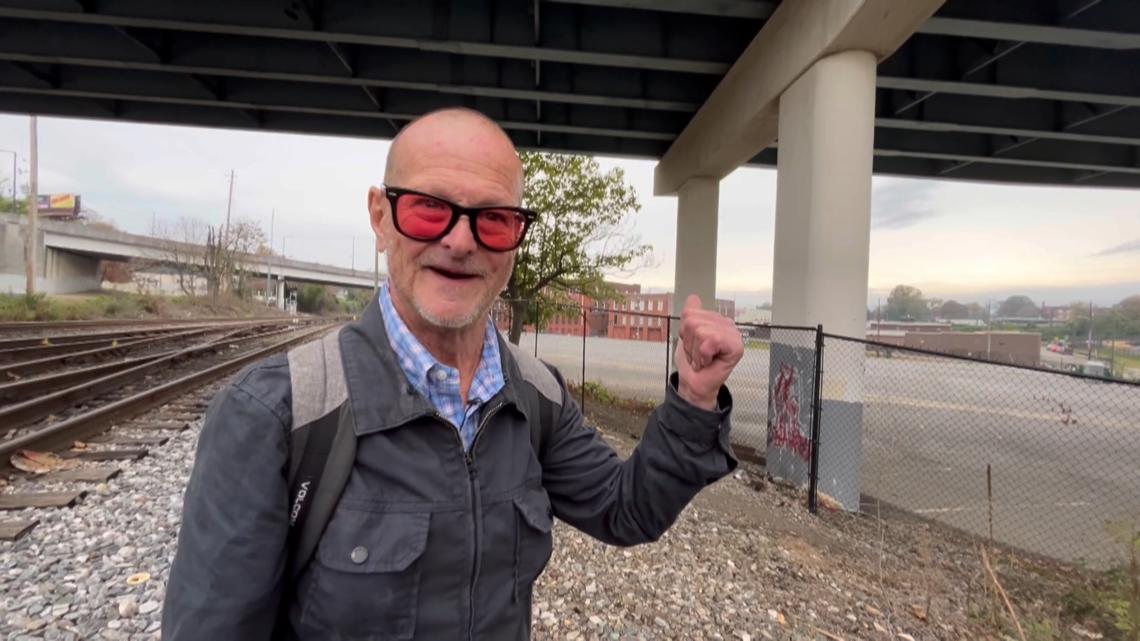
"All this was a jungle, all these storm drains I keep clean," he said, walking around streets near downtown Knoxville. "That's where I worked all the time, keeping all this beautiful."
He said his life hasn't always looked like this.
Keith told us about his upbringing and how he is a first-born grandchild on both sides of his family. Keith said his family was wealthy, college-educated and part owners of a bank. But when he moved from Illinois to Maryville in high school, he said that's when the trouble began.
He served in the Navy as a critical care specialist.
"I was a hospital corpsman medic, but because I was so good, I just kept plateauing up," Keith recalled.
Keith later moved to New Orleans where he attended culinary school at the Culinary Institute of the Mediterranean. But soon, his struggles with substance use got in the way.
"I really hit bottom, started drinking and I started just not caring," he said. "I had no soul. I was in so much pain, so much torrent. I'd gone from Mr. Everybody, Everything, you know, unlimited to absolute nothing and it sucked. Did a lot of cocaine every day. I did more drugs and sold all my stuff that I still had here and there"
Eventually, he lost his home and most of his belongings.
"Every time, one step forward, three steps back, you know," Keith explained. "Lost my car, my health; clean and sober and then you got debt and no vehicle. Nobody wants to hire you. You got a shoddy work history if that. No references. And when you're paid it's usually very basic pay. You can't ever save you know you're trying to replace stuff that you've lost. You need, you know, just basics."
Keith gave WBIR a glimpse into what his day-to-day life looked like.
A day living in a shelter with Scott
Like Keith, Scott also knows what it's like to be homeless.
"Disheartening might be a good word for it," Scott said.
Scott grew up in Illinois and said he had trouble at an early age, which is where his depression and anxiety started. He tried to join the army when he came of age but his mental health was not where he wanted it.
Scott moved around until he moved in with his grandparents in Rhode Island. He worked jobs here and there but would eventually lose those jobs, which became discouraging for him. He later went to Kodak to live with his brother, but as he puts it, life "went from bad to worse."

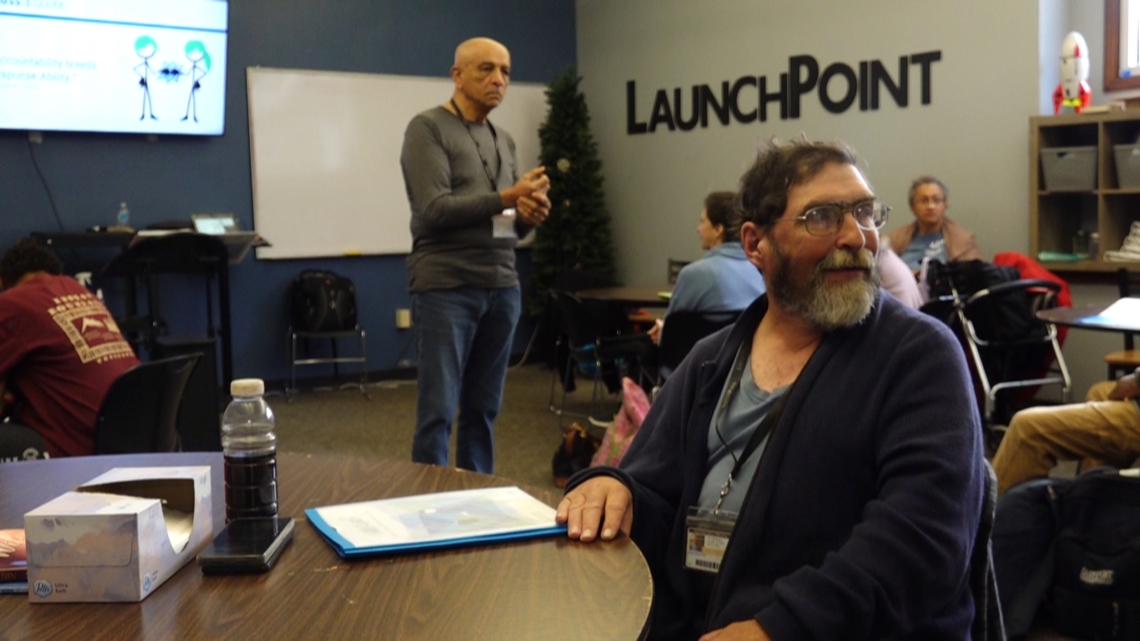
After losing one job after another, Scott spent three years living under a bridge.
"I was ready to die under that bridge if it came to that," he said. "And that was just…the word really is hopelessness. There's just no hope anymore, so why bother?"
Scott said he's been in therapy all his life, but because he didn't have much money, he would seek free counseling when it became available. Often, Scott said he would hear the same feedback: life will get better.
Unfortunately, Scott found the opposite until he moved to Knoxville a little over a year ago. Here, Scott said he's found some hope through a shelter where he currently resides.
"It's made all the difference," he shared. "The depression isn't so much of a problem anymore. And I remember my surprise when about two weeks after I started taking the one for anxiety, I found myself, instead of sitting off in a corner of one of the courtyards just kind of being my own quiet little self, I found myself sitting at at one of the tables just having a light chat with somebody about the weather or something like that. And I was like, wait, I don't do that."
The Knoxville Area Rescue Ministries' LaunchPoint program is for people who are waiting on housing. Through the two-phase program, they can develop life skills to help them break the cycle of homelessness.
CareCuts serving since 2016
Todd Reynolds works as the executive director of CareCuts of Knoxville, where he sees people like Keith and Scott every day.
"We all deal with shame and we all deal with guilt, but I think it's really multiplied when you're on the street and you don't have a home," Reynolds said. "Really at the end of the day, they just need to be seen and that's the reason that we're here."
From cutting hair and providing meals to securing documentation, CareCuts serves people like Keith three days a week.

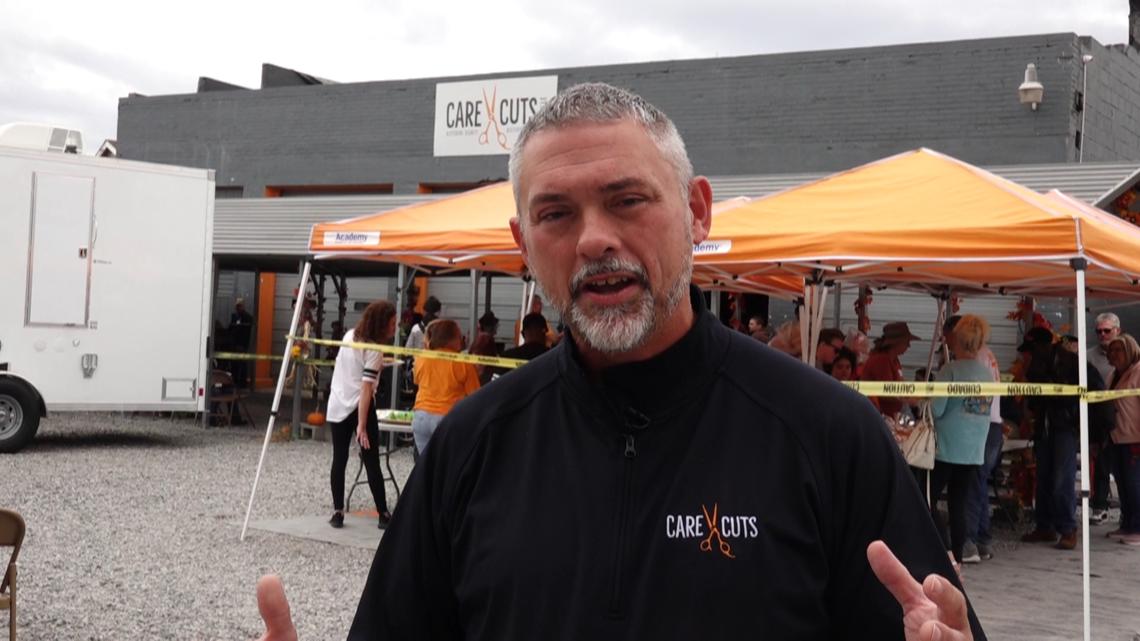
"If you are walking down the street or you're driving down the street and you see someone that's homeless, just know that that homeless person is probably more scared of you than you are of them because they are very desperate at that point and they just are trying to figure out their basic needs," Reynolds said.
CareCuts works to meet those basic needs by providing food, showers and other resources. It also hopes to see its guests find housing of their own, Reynolds explained.
To continue furthering that mission, Reynolds said there is a business plan in place, with drawings of a new facility that would meet the needs of the homeless on a different level.
"It would look like a trauma center," Reynolds said. "So if you came in, we would assess your needs and we would have space for a nursing school to come in and assess you that would be on site. That we would make the space available, but we wouldn't employ the people there. And if you needed some help with addiction, then we would have someone here that could meet with you immediately for addiction because one of the big other obstacles we have is we can help you get where you need to go."
But new concepts and ideas require grant money and donations.
KARM's LaunchPoint Program
The Knox Area Rescue Ministries (KARM) offers a program for the homeless called LaunchPoint.
This 30-day program brings in around 15 to 25 homeless to a caring community where everyone gets to know them in small groups. The goal is to help those break the cycle of homelessness in their lives.
"They're not invisible to us," Judge Pippin, director of learning and student development, said. "We hear them, they have a voice that means something to us."
Pippin has been spreading that message to guests at KARM for 18 years. Now as the director of learning and student development, he sees the impact every day on people like Scott as they work towards their goals.

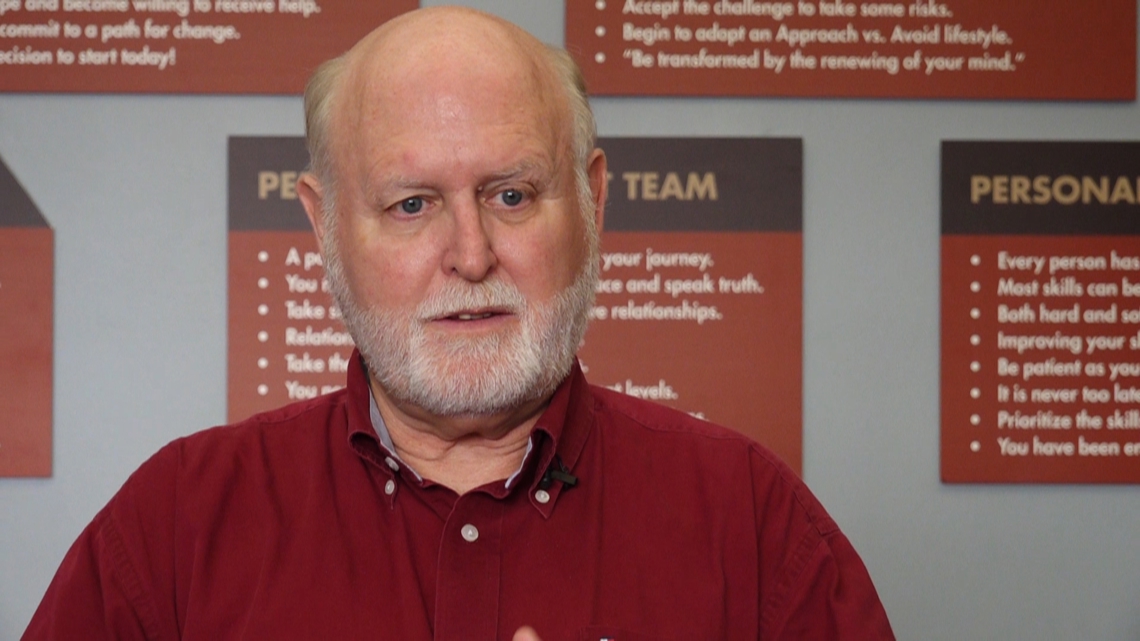
"I'm still on the mend," Scott said. "I'm still a work in progress."
"We thrive off seeing change," Pippin said. "We thrive off seeing hope. Jesus didn't send us here to help people get comfortable on the streets. He sent us here to help people find life change."
It's a change Scott said he wasn't always prepared to try.
When asked if being homeless is a choice, Scott said, "I would have to say yes. I was the one who decided to live under the bridge for three years. That was my choice. I didn't really know what else to do. But if I had been interested enough, perhaps I could have gone out there and found more resources. It was my choice to stop trying. And that's the unfortunate thing. When you make bad choices, you usually have fewer and fewer choices ahead of you. Once you start making good decisions, you get more and more choices. And from there, you get more and more opportunities."
Scott told us he found many opportunities through KARM, including a chance to help out by teaching classes and folding laundry.
According to Scott, one of the sayings leaders use for KARM is that "rescue plus relationship equals restoration." He said those two ingredients are key.
"They know how important the personal touch is," he said about KARM. "The homeless are so lonely and so at the end of their rope as it were and not knowing what to do. They really need somebody with a hand out to say, ‘Let me help you stand up.’"
Addressing the issue
Offer a hand up is what Knoxville-Knox County Office of Housing Stability Executive Director Erin Read said the city and county are trying to do.
"Homelessness has been rising in our community," Read said. "And so the city and the county, Mayor Kincannon and Mayor Jacobs both felt that it was time to collaborate and to have a solution that could cover both city and county."

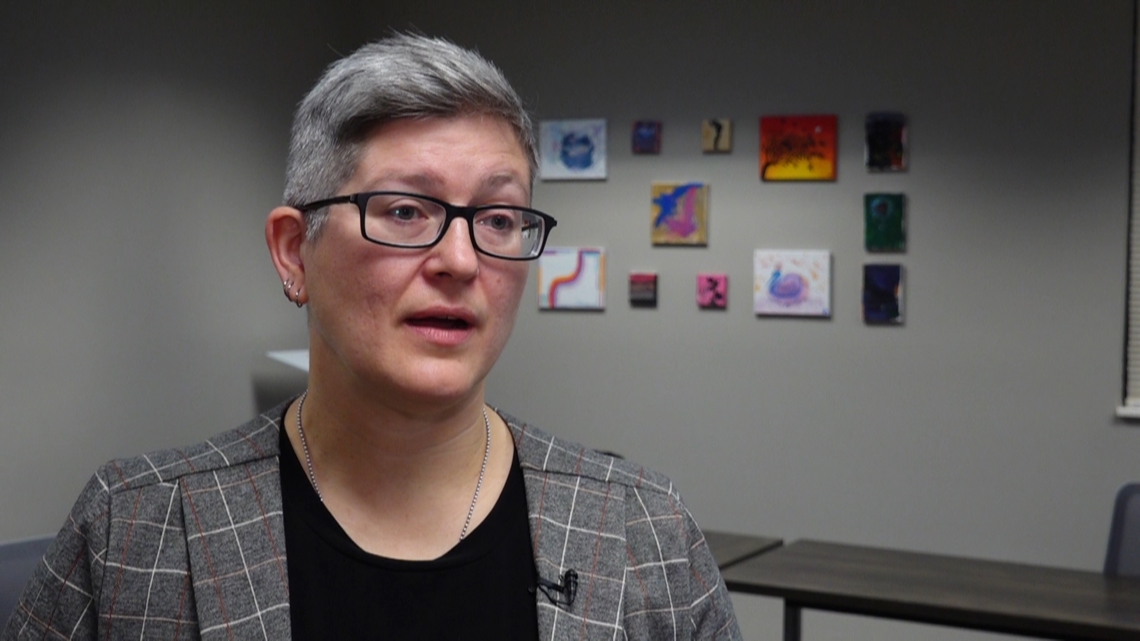
Currently, Read is working on a strategic plan to address homelessness in the area.
"It'll be a five-year road map for how we can best use federal, state and local funds to have a strong impact and reduce homelessness," Read explained.
The first part of that plan started with hosting four listening sessions to hear from people in the community of all ages, all backgrounds, some with homes some without.
"One big takeaway is that people are concerned and frustrated about homelessness in our community," she shared. "They're concerned about people experiencing homelessness, that they are able to find access to housing and resources. They're very frustrated about the effects of homelessness on their businesses, on their homes. They're frustrated with the mental illness and the substance misuse that they see among people experiencing homelessness. And they're especially frustrated that they want people who are homeless to be able to have access to services and a path to self-sufficiency."
A particular barrier Read acknowledged is a lack of accessible housing both nationwide and in the local area.
"At the systemic level, we are definitely aware that we have a housing shortage," Read said. "You can see that in soaring rental costs. So that is one thing that we are talking a lot about in the listening sessions is the effect that this housing shortage has on homelessness and cost of housing."
Now, Read said her office will use that feedback to meet with local service providers, law enforcement and healthcare officials to figure out a plan, which will be available in late spring.
"People want a compassionate, practical approach that respects people experiencing homelessness as human beings and opens up a path to self-sufficiency," she said.
To work toward that, Scott said it’s important to really understand homelessness.
Looking at the future
Scott said there is a stereotype that all homeless people are drug/alcohol addicts. Instead, Scott counters not all people living on the streets struggle with substance abuse or mental illness. One quality Scott said they do share in common is many of those people are just looking for help.
"It's not as clear-cut as it would seem from the outside," Scott said. "It's more complicated. There are a lot of very intelligent, very honestly warmhearted people here."
"They're beautiful people," Pippin added. "From the outside, others don't look at them and see that."
For both Keith and Scott, the help they've received through CareCuts and KARM is helping propel them to the next step.
Scott told us he's working to find housing in Sevierville to stay closer to family. And for Keith, he's on the list to receive an apartment through a new veteran housing project, Liberty Place.
If you would like to give back to the homeless community, you can:

